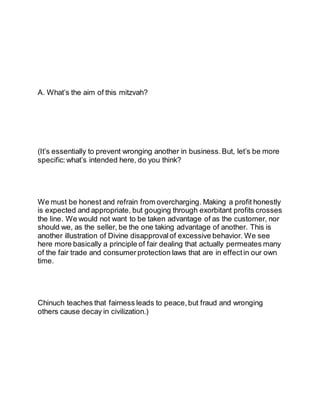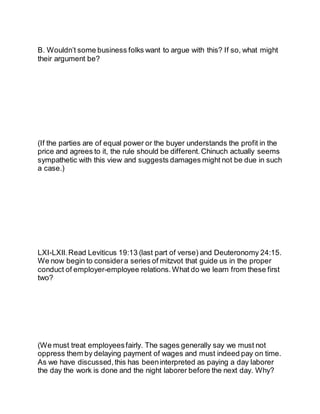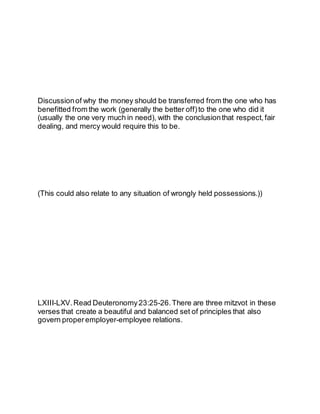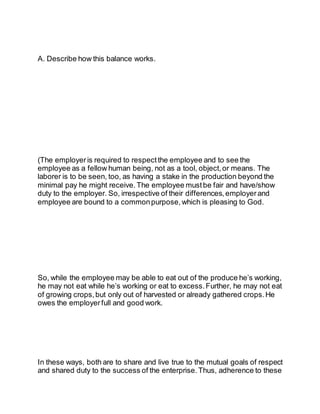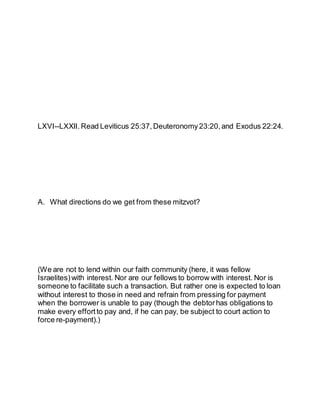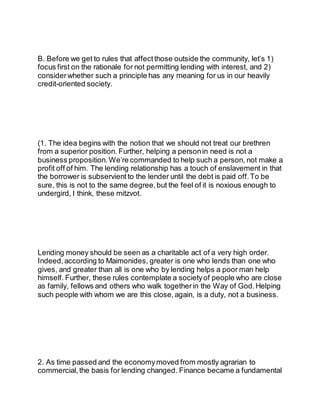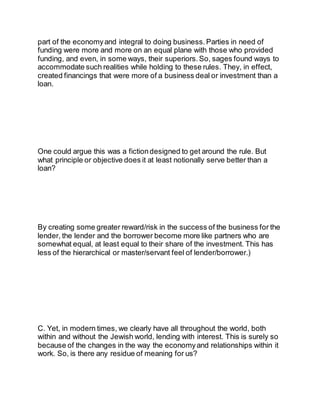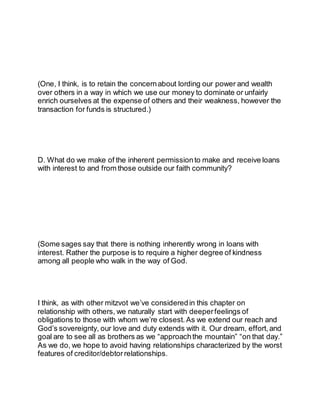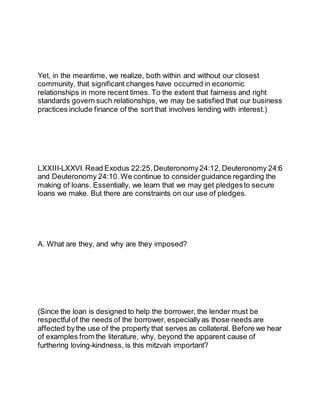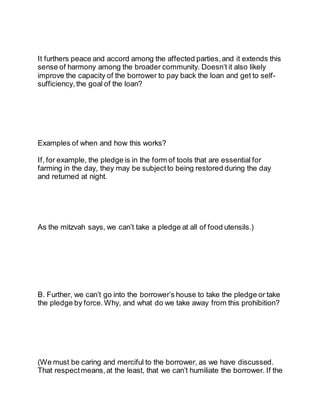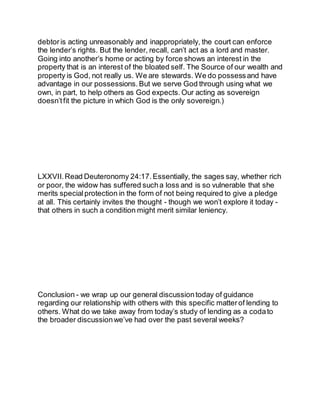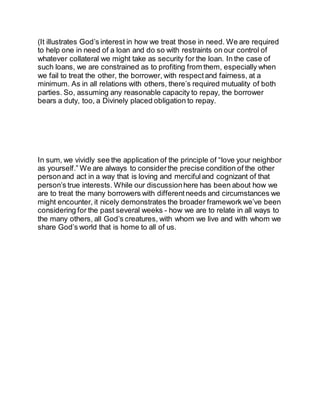This document discusses biblical principles for commercial and economic relationships. It covers topics like prohibiting overcharging in business, paying wages on time, lending within the community interest-free, and constraints on pledges for loans. The key ideas are that economic interactions must be conducted fairly and honestly, without taking advantage of others or treating them as objects. While practices have changed, the underlying values of mutual respect and fairness between parties still apply.

